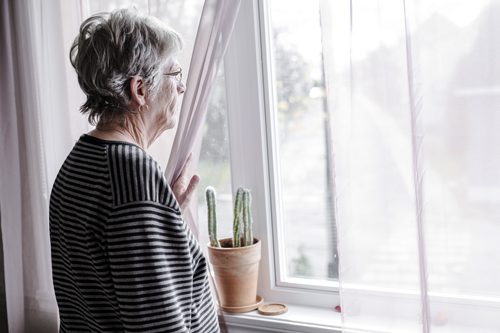
A Hidden Epidemic
An article published by the University of Buffalo reports that prescription drug and alcohol abuse affects up to 17 percent of those over 60. That number is expected to increase over the next 20 years as Baby Boomers reach retirement age. Seniors most commonly become addicted to alcohol, which is especially dangerous when combined with the prescription drugs and over-the-counter (OTC) medications that many seniors take daily.
Unfortunately, due to hurried office visits or lack of knowledge, health care providers often overlook substance abuse among this age group. In addition, many elderly people have behavioral disorders or medical issues that mimic substance abuse symptoms, such as dementia, depression, or diabetes.
Two Classifications of Seniors With Substance Use Disorder
- Senior citizens with substance use disorder are classified into two general groups by the Office of Alcoholism and Substance Abuse Services: late onset and hardy survivors.
- Senior citizens who become dependent on alcohol and/or drugs later in life are classified as late onset. The loss of control and resulting addiction they experience are usually the result of a catastrophic life event, health-related issues, or a series of major life changes. The emotional toll taken by these events can lead to dependence on substances for relief. More women than men are late onset substance users.
A hardy survivor is a person over the age of 65 who has been abusing alcohol and/or drugs for many years. Generally, hardy survivors have endured severe consequences of their addiction, including difficulties in their family and social life, medical and cognitive issues, and legal problems. There are more male hardy survivors than females.
Additional Causes of Late Onset Substance Use Disorder
A person can turn to alcohol or drugs in their later years as the result of many different types of life events. A loved one or spouse may become ill or die, leaving the survivor depressed and lonely. They may experience a decline in their physical or mental health as a result of memory loss, major surgeries, or illnesses. Retirement can cause feelings of depression and purposelessness; it can also cause financial strain.
Additional causes of late onset addiction include:
- Conflicts within the family, separation, or divorce
- Death of a family pet or close friend
- Placement in an assisted living or nursing home
- Relocation to a new home
- Loss of employment
- Difficulty sleeping, changes in sleep patterns
Late onset substance abuse among the elderly is also caused by prescribed opiates, such as Hydrocodone, OxyContin, and Codeine. Used to manage pain caused by surgery, injury, or a chronic condition, these medications are highly addictive. Benzodiazepines, also highly addictive, are often prescribed to senior citizens to treat anxiety, insomnia, and pain. Benzodiazepines include Valium, Xanax, Librium, Ativan, and Klonopin.
Know the Warning Signs of Substance Abuse and Addiction
Although it can be difficult to identify the signs of substance abuse in seniors because of their similarity to the signs of old age, it is important to observe your loved one to note any significant changes in behavior or health.
Signs of addiction can include:
- Confusion, memory loss, difficulty concentrating
- Decreased appetite and weight loss
- Loss of coordination, frequent falls, unsteady gait, tremors
- Unusual sadness or depression, irritability, agitation, anxiety, or mood swings
- Insomnia or changes in sleep patterns
- Poor hygiene
- Difficulty staying in touch with family and friends, increased isolation
- Lack of interest in hobbies or activities they enjoyed
Help is Available
Some seniors may feel too embarrassed or ashamed to get help for their alcohol or drug addiction. Others may be afraid of losing their independence or consider it a private matter.
Regardless of when your addiction started or how old you are, it is never too late to get help. The caring, professional staff at English Mountain Recovery in Tennessee welcomes clients of all ages.
 To learn more about programs offered at English Mountain Recovery, addiction treatment near Knoxville, call and speak with someone today at (877) 615-8569. We are ready to help you or your loved one recover.
To learn more about programs offered at English Mountain Recovery, addiction treatment near Knoxville, call and speak with someone today at (877) 615-8569. We are ready to help you or your loved one recover.


